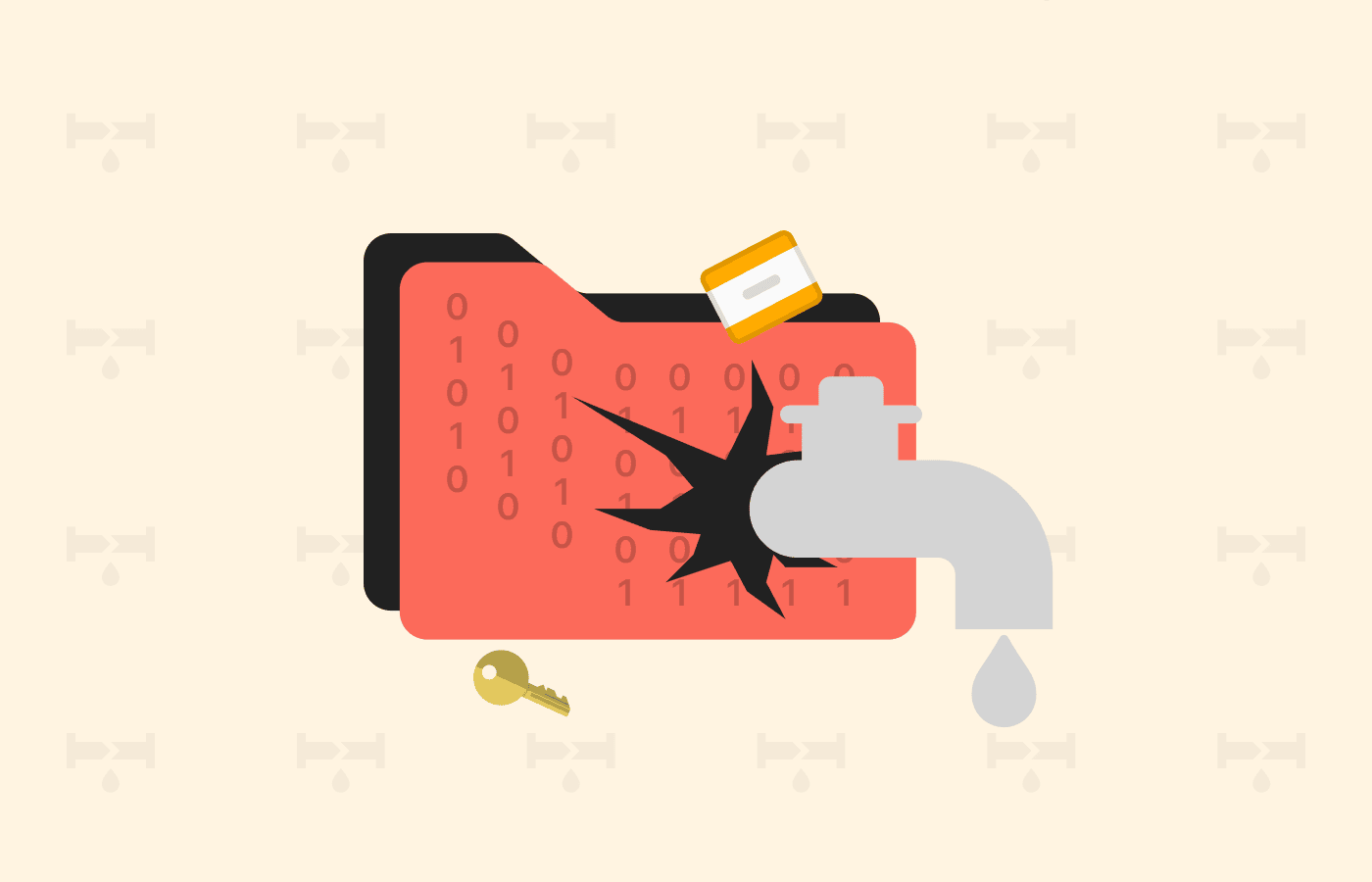The name “Tor” is the acronym for The Onion Router, and its hallmark offering is that it allows users to access the dark web, where they can find unindexed and hidden websites online. The browser protects them from surveillance and online tracking, as it reroutes internet traffic through a network of servers worldwide and encrypts it in several layers, just like an onion.
Questions regarding the safety and legal implications of using the browser have emerged, especially because it provides access to the dark and hidden corners of the internet. In this article, we will talk about the safety and legality of Tor Browser.
What is Tor?
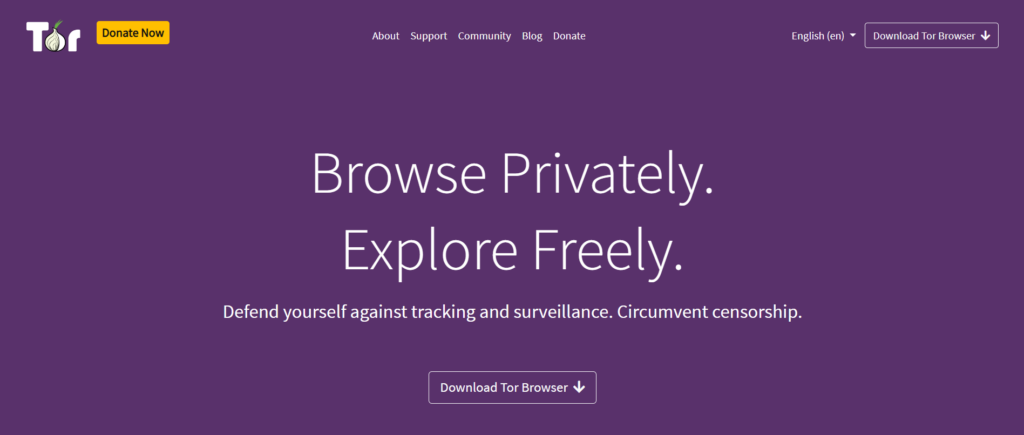
Imagine a super-secretive version of the regular web browser; that’s exactly what the browser is. It is an open-source privacy network that enhances private access to the Internet. The computer network utilizes advanced encrypted protocols to ensure users enjoy optimum privacy and anonymity. It shields users’ communications and online data with its multi-layered onion-like approach.
The browser was initially a project developed and solely used by the United States Navy to safeguard confidential government information. Eventually, it became a public platform that any internet user could use and access. Volunteer developers regularly engage with the Tor network to upgrade and enhance the platform for an improved experience.
How to use Tor

If you want to increase your online security and privacy, consider installing the Tor browser on your device. Search for the Tor browser on your App Store, Google Play Store, or the relevant official store on your device to install the browser. Dive into the tutorials once you install it to understand how the browser works. Make sure your device is running a compatible operating system and connected to the internet before you start the download.
It has a default privacy setting that offers the average user a decent level of privacy. You can also customize the settings if you want more. Just keep in mind that customizing Tor can affect the functionality of other websites.
What makes the Tor network legal?
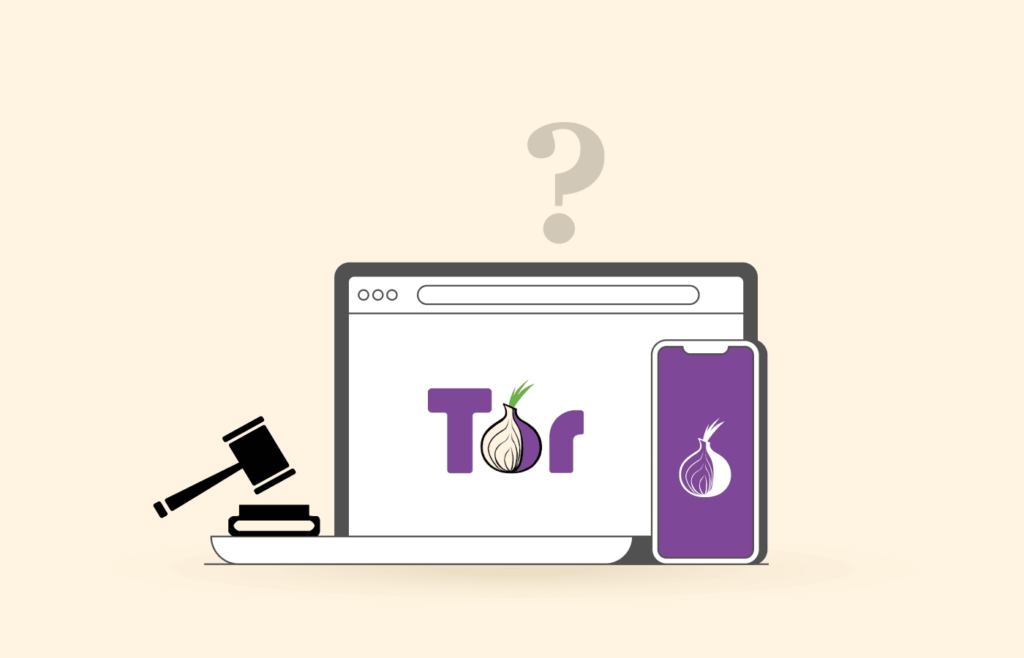
On the face of it, you must understand that it is not an illegal platform. The developers of the Tor project intended to create a platform that facilitates anonymous communication, which is not illegal in many countries. Hence, it allows users to hide their IP address and enjoy anonymity, and doesn’t fall under the scrutiny of the law in developed countries like the United States and Canada.
The browser differs from other platforms like YouTube Vanced, HdToday, and Popcorn Time because they’re illegal ways to stream movies and songs. Essentially, they are piracy platforms and are illegal in virtually all countries.
Another example of distinguishing between an illegal platform and illegal activities is BitTorrent. On the face of it, BitTorrent is not an illegal platform, especially when used for peer-to-peer file sharing. However, it becomes illegal when internet users download copyrighted content via the platform.
Using BitTorrent as a reference, Tor is an open-source project managed by volunteer developers. It anonymizes your online traffic utilizing a proxy server network. Here’s the catch: unlike VPNs, you don’t have to pay a cent.
Is it legal to access the dark web using Tor?

Yes, you can use it to access the dark web without incurring legal implications if you don’t commit a crime. You can attribute the dark web to BitTorrent in that the platform is not in itself illegal. It’s what you do on it that determines whether or not you’ll be liable.
You can open your device and connect to the Tor project to access dark web sites listed in our article here or a marketplace like AlphaBay today, and you’ll hardly face legal implications. Your activities in the marketplace are what will determine if you’ll be legally liable.
For example, if you engage with an illegal arms dealer on the dark web marketplace to purchase a gun, that’s an illegal activity and would constitute a crime in virtually all regions worldwide.
Which countries have banned the Tor network?

Many countries are skeptical about the activities and operations that the Tor browser encourages. The platform’s anonymity makes it almost impossible for them to enforce their surveillance and internet usage laws. This is most common in countries with authoritarian governments, as they strive to control everything happening within their borders. That’s why many countries enforced laws to ban the Tor website and shut down its relays.
Examples of countries that have banned Tor browser within their territories include:
- China
- Egypt
- Iran
- Russia
- Mongolia
- Armenia
- South Africa
However, in all of these countries except China, users can still access the Tor network using proxy servers and mirror websites. You must exercise extra caution if accessing the Tor network from these countries. While you may not be arrested for using the Tor network, you put yourself under their radar as law enforcement agencies begin to suspect your interactions online.
This high suspicion level is due to the myriad of illegal activities that the Tor browser facilitates. Most of them forget that Tor is also useful for thousands of legal and productive activities. We’ll touch on some of the legal uses of the Tor network in the next section.
Which is the best VPN to use with Tor?
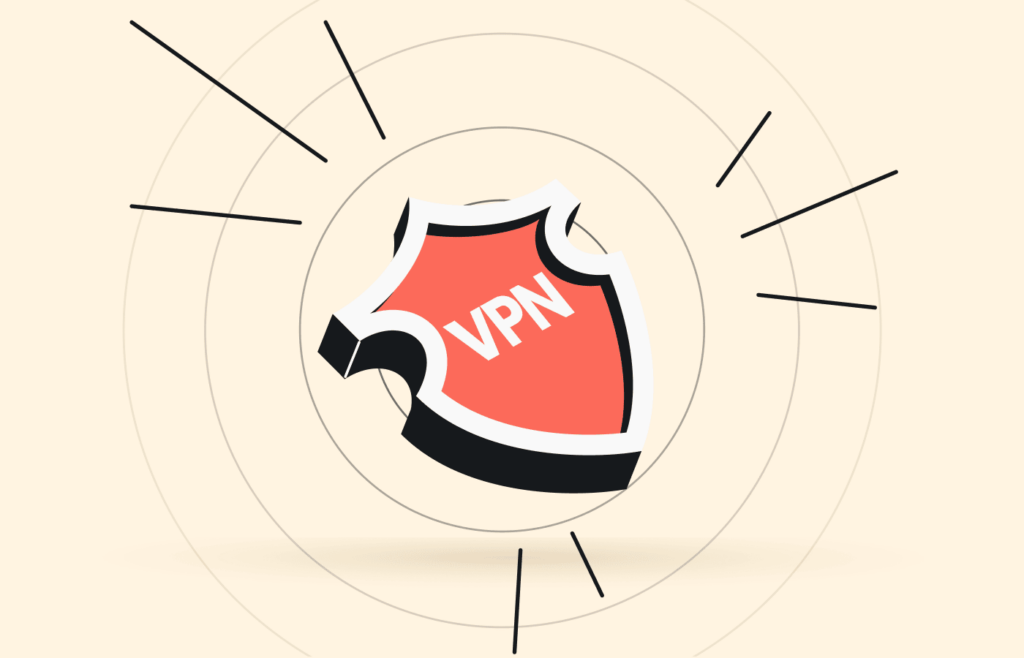
Although the Tor browser guarantees online privacy and anonymity, several situations can render Tor ineffective in making users completely anonymous. For example, any third party can easily discover your identity if you use a browser plug-in, a torrent-sharing app, or a Tor-configured browser as a proxy.
Hence, connecting to a reliable VPN is important before surfing the internet on the Tor browser.
The VPN is an extra layer of protection to maintain anonymity and privacy when Tor falters. NordVPN is one of the best VPNs to use with a Tor browser.
NordVPN

Our top recommended VPN provider and the most efficient tool to use with the Tor browser that boasts top-notch security and privacy.
Pros
- Provides the unique NordLynx protocol that enhances your browsing experience
- Offers cutting-edge features like Tor-optimized servers
- Enforces a no-logs policy
Cons
- The OpenVPN configuration isn’t easy to navigate
NordVPN ranks among the top VPN services, and it’s not hard to see why. With an impressive global network of over 7,600 servers spread across over 118 countries, it employs cutting-edge IP detection technology. But what sets it apart is the NordLynx protocol, ensuring blazing-fast connections for users. Subscribers even get access to dedicated IP addresses, making it possible to unlock hidden or blocked websites while using Tor.
It’s a Swiss Army knife for online freedom. You can safely access torrents, stream content, and effortlessly bypass geo-restrictions with NordVPN. And if you’re looking for extra security, it has the “Double VPN” mode, doubling your protection without any extra cost.
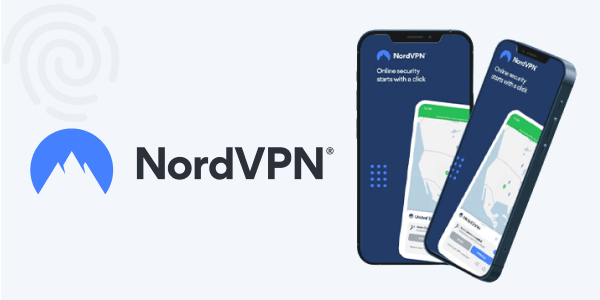
NordVPN’s kill switch is a game-changer. If your internet connection drops, it shuts down all online activity to shield you from potential hackers or third-party prying eyes. This ensures your sensitive information, like IP addresses and browsing data, stays protected during those unexpected downtimes.
The security lineup doesn’t stop there. VPN offers robust features like the AES 256-bit encryption protocol and split tunneling, giving users comprehensive control and peace of mind. Moreover, you can use this VPN service to access the dark web safely.
Read NordVPN’s detailed review
Does the Tor browser hide your IP address?
While the Tor browser’s primary purpose is to provide anonymity and privacy when using the internet, certain situations can cause the browser to compromise on optimum anonymity. For example, when you use a web browser that you’ve configured to use Tor as a proxy, browser extension, or a torrent file-sharing app, you’re making your identity accessible to prying third parties.
What are some legal uses of Tor?
Several legal professions require anonymous and private access to the Internet to function effectively. Anonymity is even more important in countries with strict laws infringing on rights, such as freedom of speech, expression, thought, criticism, and dissent. Some of the legal uses of the Tor network include:
- Political dissidents and minority parties can use the Tor network to organize demonstrations, protests, and rallies on fundamental human rights matters.
- Journalists and media experts working in authoritarian governments can use the Tor network to share vital information while shielding their identities and sources to prevent vindictive measures.
- Law enforcement officials can utilize the Tor network to monitor criminal activities and track down criminals.
- Professionals in cybersecurity and IT can use the Tor network to perform penetration testing. The process involves testing certain security protocols by replicating attacks by actual malicious hackers.
- The Tor network is also a veritable tool for whistleblowers to share information and remain anonymous. However, there’s still controversy surrounding whistleblowing’s legal position as it may involve sharing confidential state information, a crime in many countries.
Is Tor completely safe and private?

It introduces internet users to a separate section of the internet where privacy, anonymity, and freedom are guaranteed. You can surf the internet without worrying about third parties, such as the government, your boss, and hackers monitoring your activities. The anonymity that Tor provides encourages internet users to express themselves freely.
However, Tor has faced several security and safety issues. Many law enforcement agencies like the FBI and CIA have found ways to circumvent and breach Tor’s security protocols. Hence, they could monitor and even trace internet users who engaged in illegal activities. Also, a weak spot was identified in Tor’s system in 2017. This weak spot could expose the IP addresses of internet users using Linux and macOS. Hence, the guarantee of complete anonymity was a farce.
This uncertainty in Tor’s anonymity level has made many internet users lose faith in the network. However, you can combine the Tor browser with a trustworthy and reliable VPN. Connecting to a VPN while using the Tor browser provides double encryption, providing the highest level of privacy and anonymity you can get.
Risks of using the Tor Browser
Everything has its flaws, so does the Tor Browser. Below are some of the risks you must look out for:
- Slow Speeds: Due to multiple node encryption, you may face slow speeds while browsing on the Tor Browser, making it unreliable for streaming and torrenting.
- Malicious exit nodes: Malicious actors operate some exit nodes. If the website you are trying to access isn’t encrypted, these scammers can intercept your connection passing through the node.
- Restrict access to certain websites: Some sites block Tor’s access due to its anonymity level.
- Monitoring: Some countries and ISPs monitor your activities on Tor. While using Tor isn’t illegal as long as you’re using it for legal purposes. However, in countries with stricter censorship, Tor traffic may raise questions.
FAQs
Yes, third parties can track you while using Tor, especially if there’s a compromised exit node. That’s why it’s advisable to combine Tor with a reliable VPN.
As of 2023, the Tor browser is blocked in China, Russia, North Korea, Egypt, and Iran. Other countries, like Bosnia, Lithuania, Uzbekistan, Herzegovina, and the Bahamas, have also enforced restrictions.
